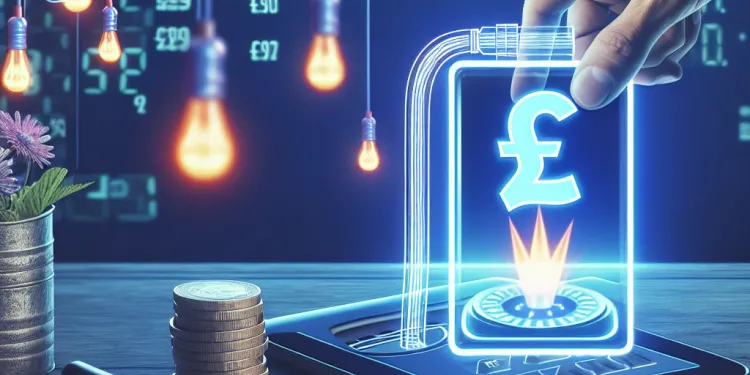
Find Help
More Items From Ergsy search
-
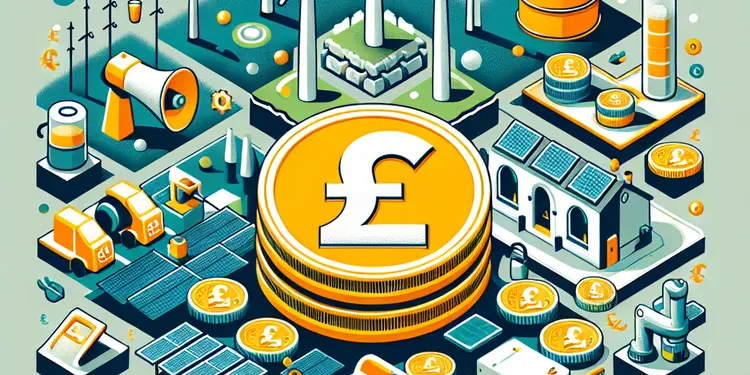
What is the UK's energy price cap?
Relevance: 100%
-
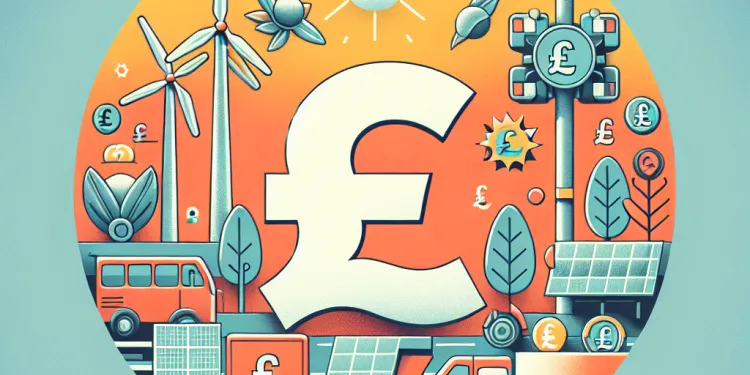
What is the Energy Price Cap in the UK?
Relevance: 100%
-
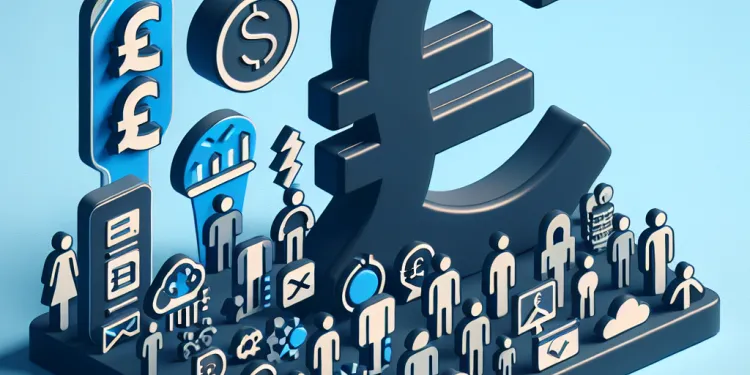
What is the energy price cap?
Relevance: 100%
-
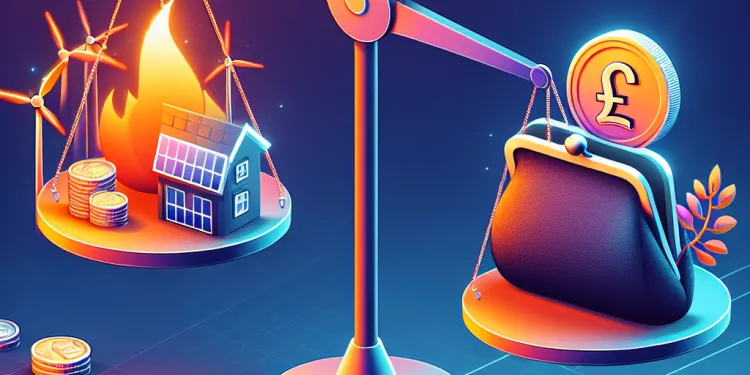
Is the energy price cap the same for everyone?
Relevance: 96%
-
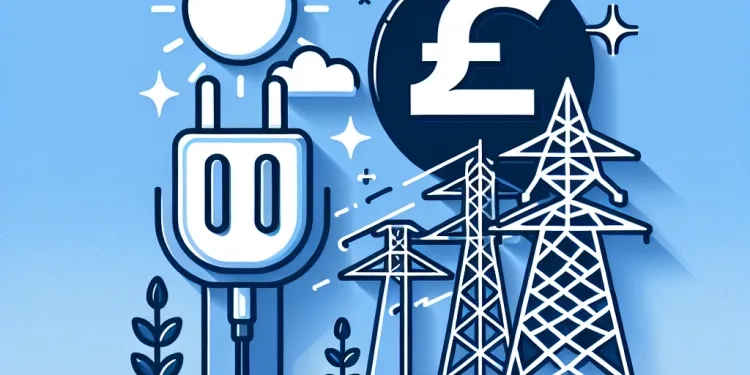
When was the energy price cap introduced?
Relevance: 96%
-
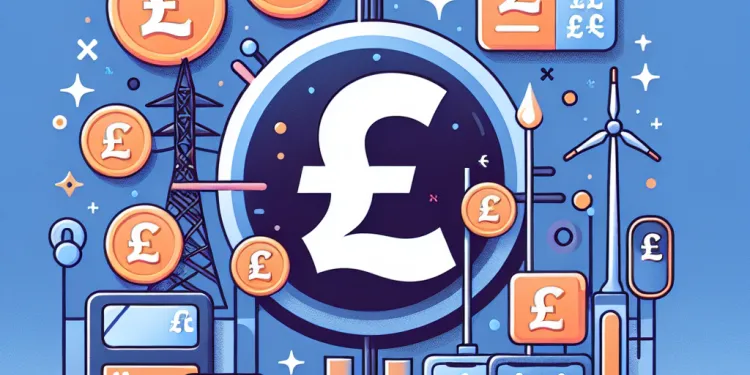
Why was the energy price cap introduced?
Relevance: 96%
-
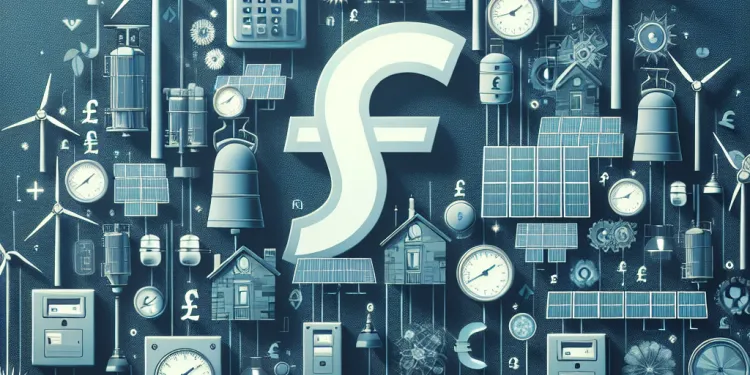
How is the energy price cap calculated?
Relevance: 95%
-
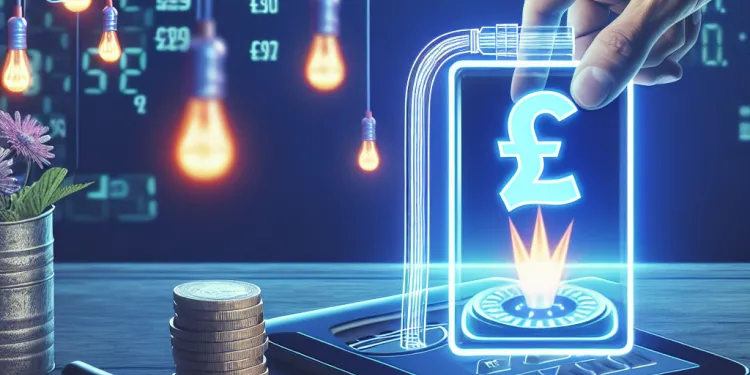
Can the energy price cap go down as well as up?
Relevance: 93%
-

How often is the energy price cap reviewed?
Relevance: 92%
-
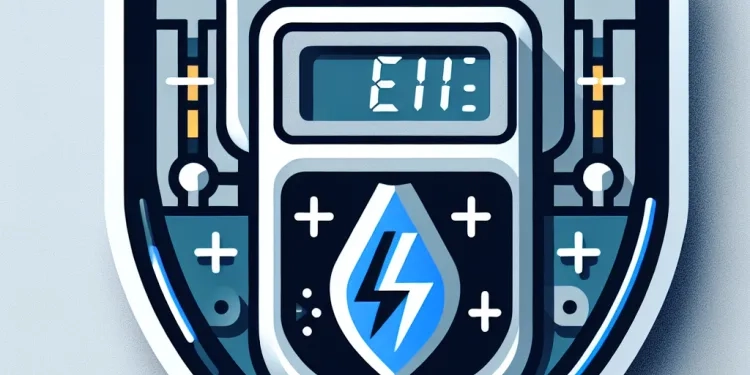
Does the energy price cap apply to all energy tariffs?
Relevance: 92%
-

How does the energy price cap affect my energy bills?
Relevance: 92%
-
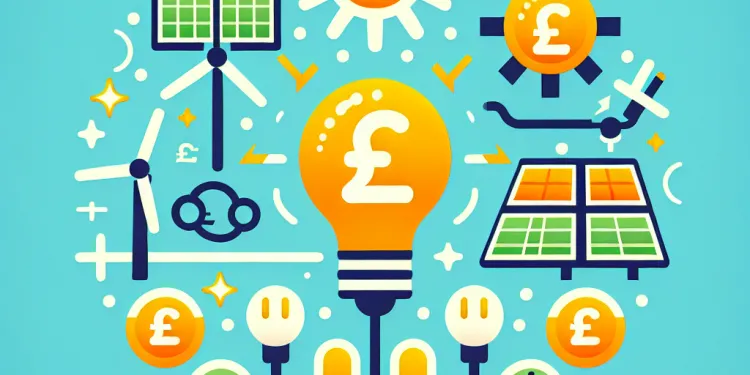
How does the energy price cap affect green energy tariffs?
Relevance: 89%
-
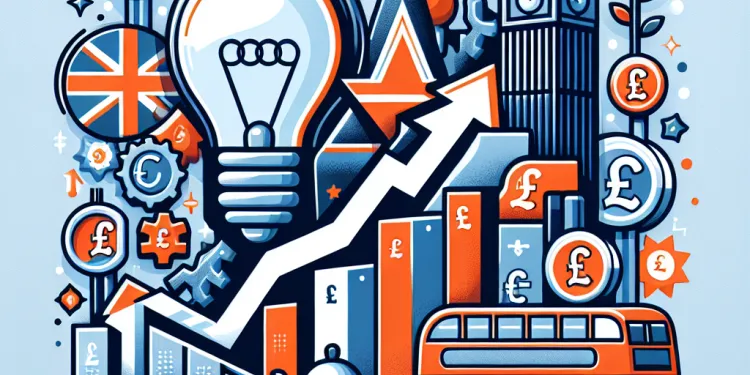
Is the energy price cap being reviewed due to market changes?
Relevance: 89%
-

Does the energy price cap guarantee my total bill?
Relevance: 89%
-
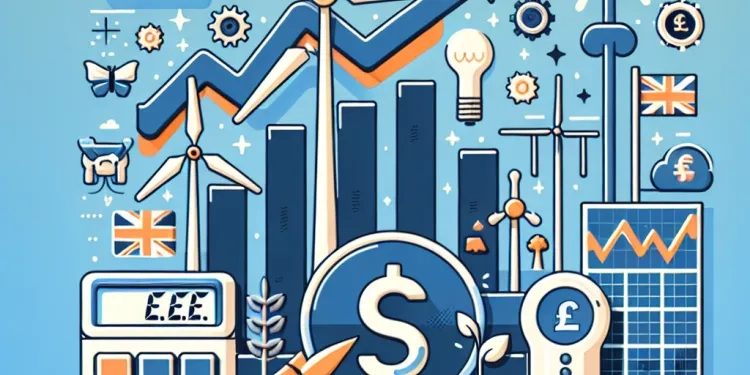
What factors influence changes to the energy price cap?
Relevance: 89%
-
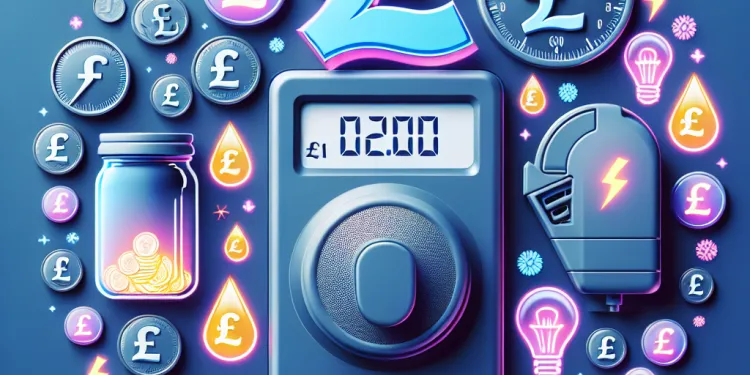
Does the energy price cap apply to prepayment meters?
Relevance: 89%
-
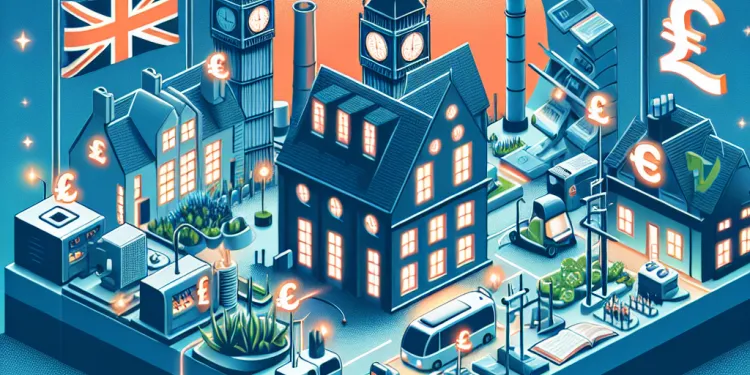
Can energy suppliers charge less than the price cap?
Relevance: 87%
-

What happens if my energy supplier charges above the price cap?
Relevance: 86%
-
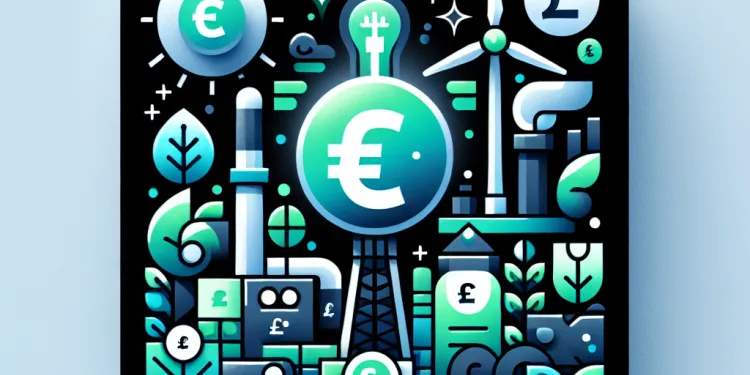
Where can I find more information about the energy price cap?
Relevance: 84%
-
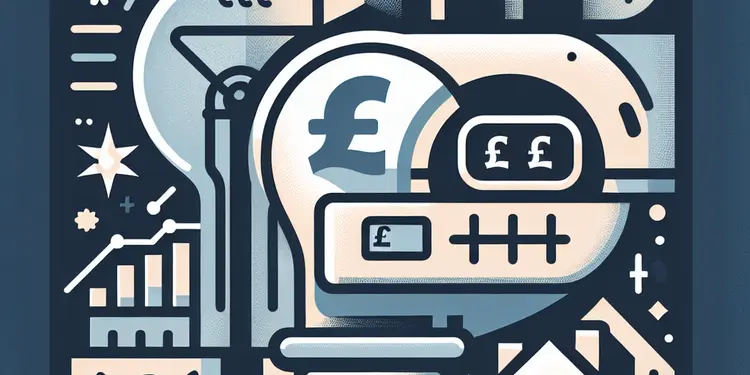
Are energy prices regulated in the UK?
Relevance: 83%
-
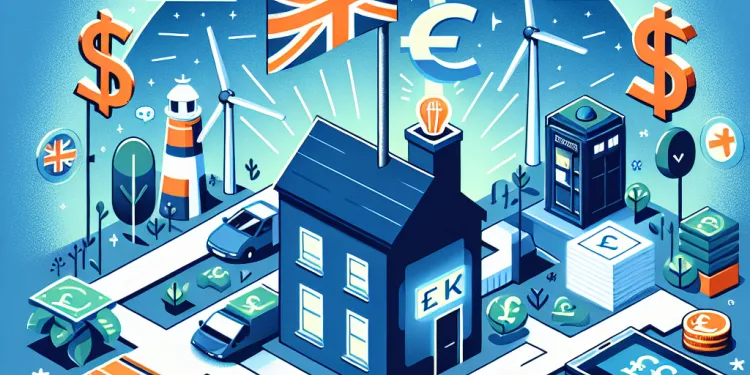
Can I still save money by switching suppliers if the price cap is in place?
Relevance: 71%
-

Who sets the energy price cap?
Relevance: 71%
-
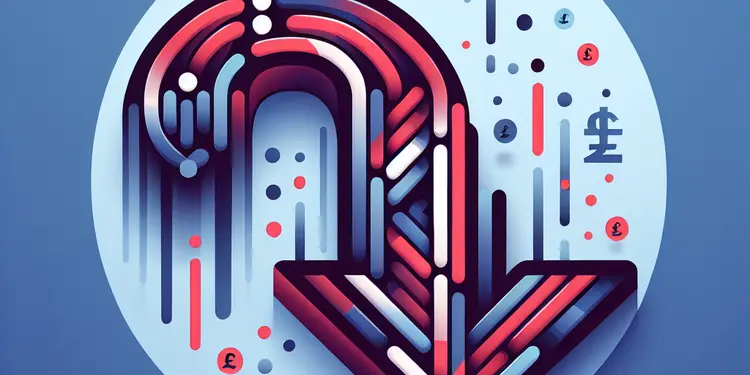
When was the last significant decrease in UK energy prices?
Relevance: 64%
-

How can government intervention affect energy prices?
Relevance: 62%
-
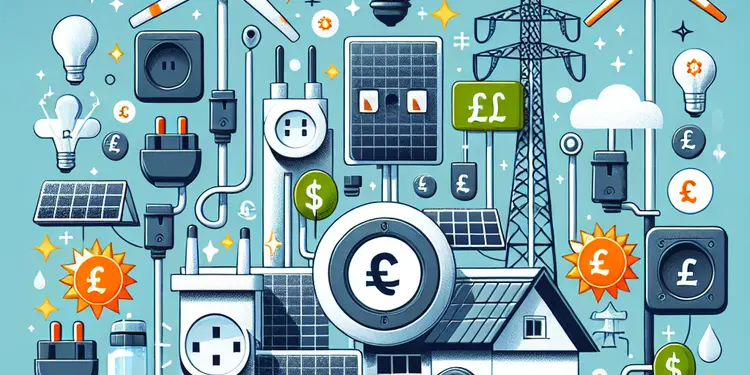
How often do energy companies review their electricity prices?
Relevance: 61%
-
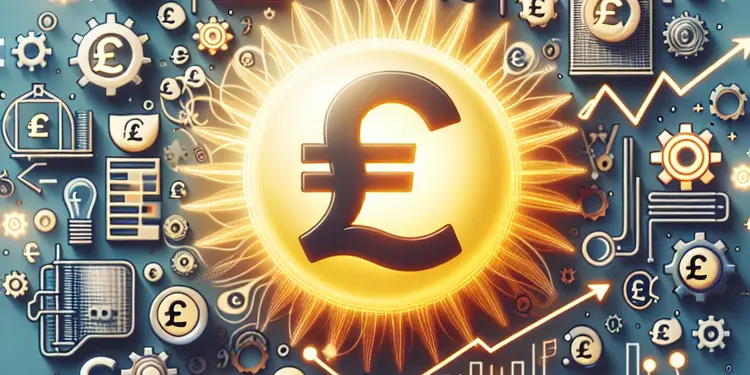
Have energy prices in the UK historically fluctuated?
Relevance: 59%
-
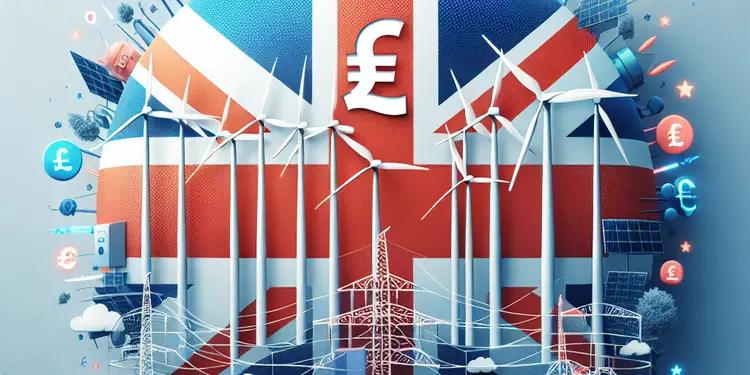
How does global energy demand affect UK energy prices?
Relevance: 58%
-
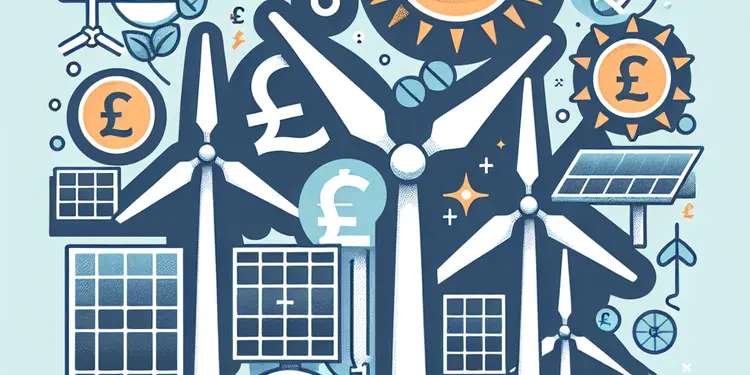
What role do renewable energy sources play in energy pricing?
Relevance: 58%
-
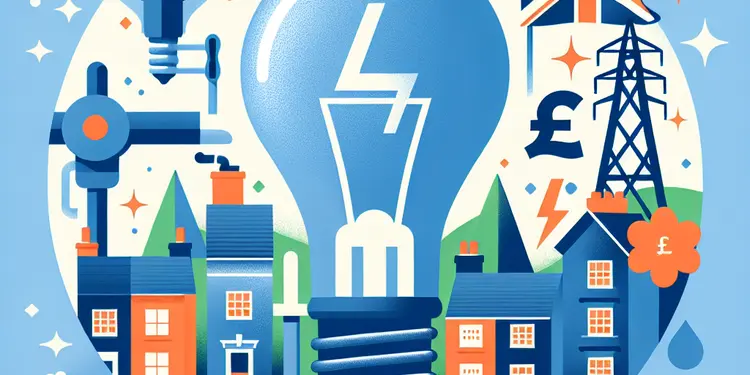
What factors influence the difference in electricity prices among UK energy companies?
Relevance: 58%
-
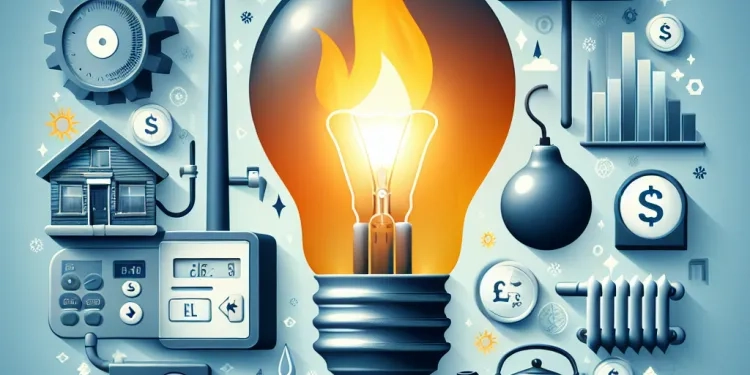
Impact of Rising Energy Prices on Household Budgets
Relevance: 55%
-
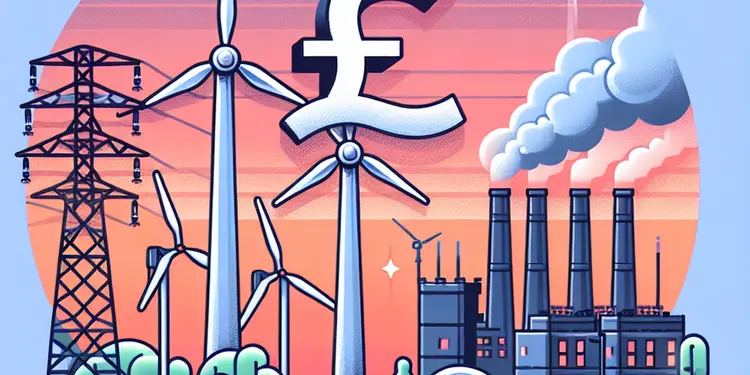
Do all UK energy companies cahrge the same for electricity
Relevance: 54%
-
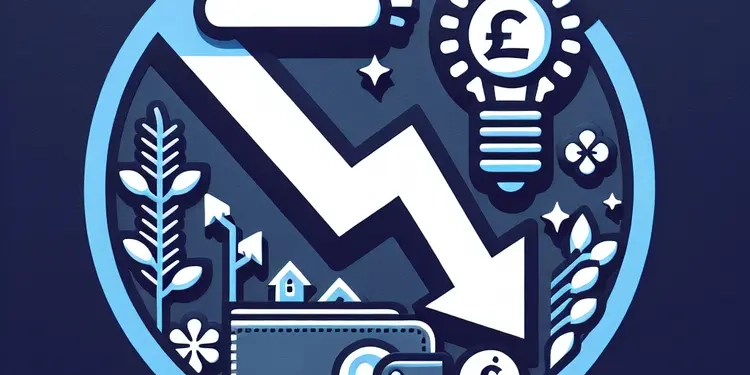
When will energy bills come back down in the UK?
Relevance: 53%
-
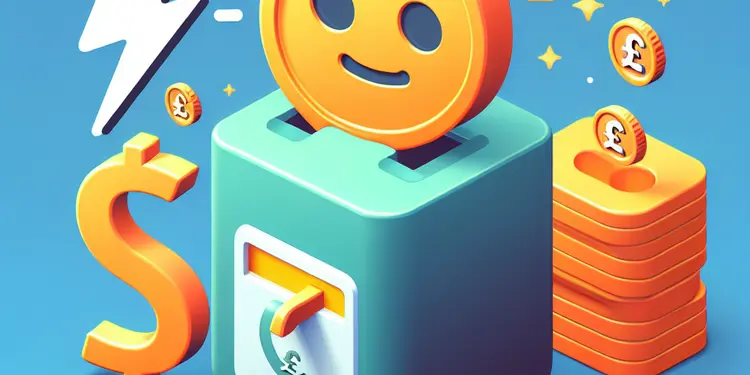
Do energy suppliers offer discounts on electricity prices?
Relevance: 52%
-
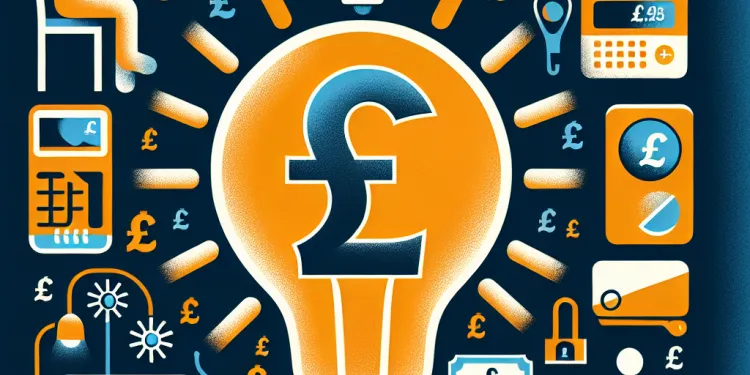
Energy Prices Set to Rise: How to Keep Your Bills Down
Relevance: 50%
-
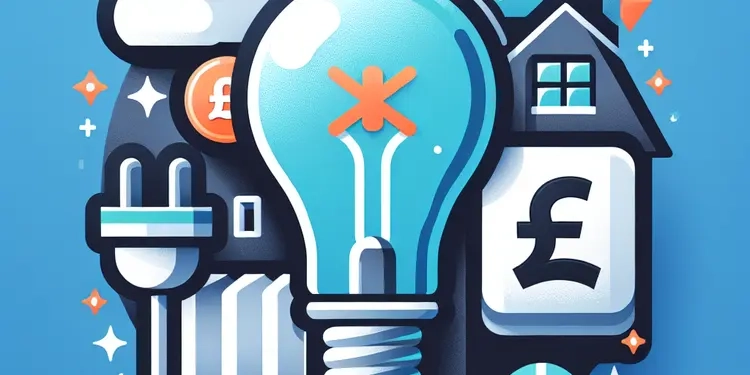
Do all UK energy companies charge the same for electricity?
Relevance: 47%
-
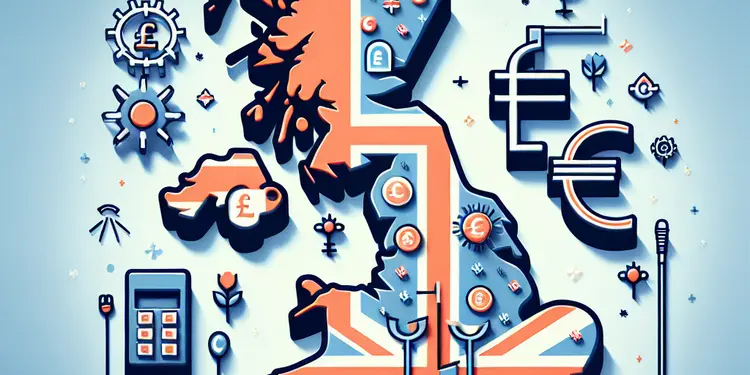
Can geographical location affect electricity prices in the UK?
Relevance: 45%
-
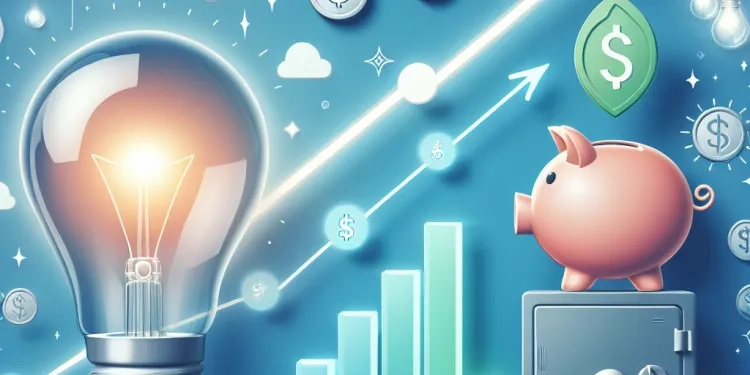
Impact of Rising Energy Costs on Family Budgets
Relevance: 42%
-

UK Government Announces New Energy Bill Support Amid Rising Costs
Relevance: 42%
-
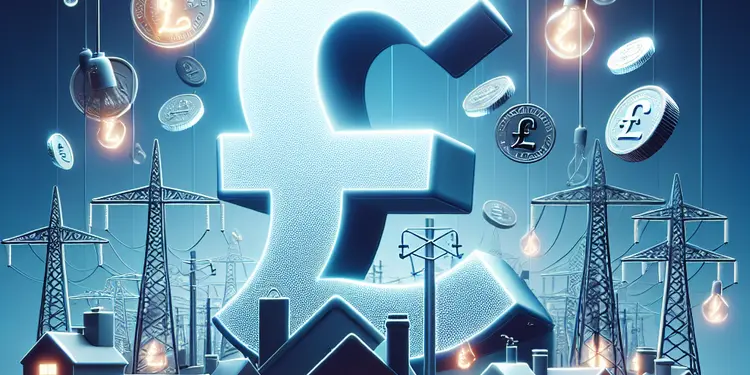
Why do energy companies charge different rates for their electricity?
Relevance: 40%
-
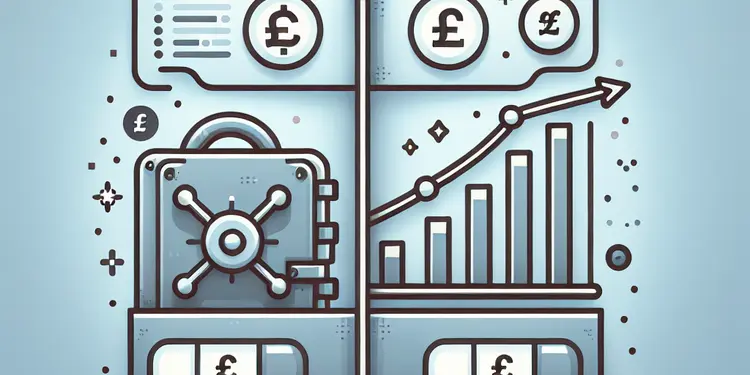
Can fixed-rate tariffs offer better price stability compared to variable tariffs?
Relevance: 39%
Understanding the Energy Price Cap
The energy price cap is a mechanism introduced by Ofgem, the UK’s energy regulator, to limit the amount that energy suppliers can charge consumers for their energy usage in England, Scotland, and Wales. Established in January 2019, it is designed to protect customers from excessively high energy prices by setting a maximum price that suppliers can charge per unit of energy. The cap is reviewed twice a year and is applied to those on standard variable tariffs and prepayment meters who haven’t switched to fixed-rate deals.
Can the Energy Price Cap Go Down?
Yes, the energy price cap can go down as well as up. The cap is not a fixed rate but a threshold that responds to changes in the underlying cost of delivering energy to consumers. These costs include wholesale energy prices, network charges, and operational costs of the energy companies themselves. If these underlying costs decrease, Ofgem can lower the cap to reflect the reduced expenses, allowing consumers to benefit from falling energy prices.
Factors Influencing a Decrease in the Price Cap
Several factors could drive a decrease in the energy price cap. Primarily, a fall in wholesale energy prices can lead to a lower cap. This can occur due to decreased global demand, increased supply from alternative energy sources, or significant policy changes affecting energy markets. Additionally, improvements in energy company efficiencies or reductions in network charges can also contribute to a lower cap. Ofgem evaluates these factors when conducting its biannual reviews, ensuring the cap reflects current market conditions.
Recent Trends and Outlook
In recent years, there have been both increases and decreases in the energy price cap, largely influenced by global energy price volatility and domestic market changes. During periods of low wholesale energy prices, the cap has been adjusted downward, providing consumers with lower energy bills. However, external factors like geopolitical tensions, economic conditions, and logistical challenges can add complexity to pricing decisions. Looking forward, ongoing advancements in renewable energy and government initiatives toward more sustainable energy sources may influence future cap adjustments, potentially contributing to long-term reductions under stable conditions.
Impact on Consumers
When the energy price cap decreases, consumers on variable tariffs can experience direct savings on their energy bills as suppliers adjust their pricing within the regulated limits. This offers an additional financial benefit for those unable or unwilling to switch to fixed tariffs. However, while a lower cap can provide temporary relief, consumers are encouraged to regularly review their tariffs and consider switching suppliers to secure the best long-term deals.
Conclusion
Ultimately, the energy price cap serves as a protective measure to ensure fair pricing in the energy market. While factors beyond consumer control primarily drive its fluctuation, the potential for the cap to go down offers hope for reduced energy costs when market conditions permit. Staying informed and proactive regarding energy tariffs remains essential for consumers seeking to navigate the complexities of the UK energy market efficiently.
Understanding the Energy Price Cap
The energy price cap helps make sure you do not pay too much for your energy. Ofgem, which is in charge of energy in the UK, made this rule. It limits how much energy companies can charge you in England, Scotland, and Wales. This rule started in January 2019. It protects people from paying too much for energy. The government checks the price cap two times a year. It is for people who pay for energy at standard rates and those using prepayment meters who haven't picked a fixed-price deal.
Can the Energy Price Cap Go Down?
Yes, the energy price cap can go down and up. The cap is not a fixed number; it can change if the costs of providing energy change. These costs include things like buying energy, maintaining the network, and energy companies' other costs. If these costs go down, the cap can get lower. This means you could end up paying less for your energy.
Factors Influencing a Decrease in the Price Cap
The energy price cap can go lower if several things happen. First, if energy prices worldwide go down, the cap may decrease. This can happen if there is more energy to buy or if less energy is needed around the world. Changes in how the energy market works can also help lower the cap. Energy companies becoming more efficient and charging less for using the network can also help lower the cap. Ofgem looks at all these things when deciding if the cap should change.
Recent Trends and Outlook
The energy price cap has gone up and down over the years. This happens because of changes in energy prices worldwide and in the UK. When the cost of buying energy is low, the cap can go down, which means you pay less. But things like problems between countries, changes in the economy, and delivery issues can make prices tricky. In the future, using more renewable energy and actions by the government could help keep energy costs lower.
Impact on Consumers
If the energy price cap goes lower, people who pay variable rates can save money. Energy companies may have to change their prices to stay within the cap. This can help people who can't or don't want to change to fixed tariffs save money. But to save the most money, check your energy deals regularly and think about changing suppliers.
Conclusion
The energy price cap is there to help keep energy prices fair. Different things can make the cap go up or down, often beyond your control. But if the cap goes down, it can help lower your energy bills. To make sure you are paying the best price, keep checking your energy deals and consider switching providers if needed.
Frequently Asked Questions
What is the energy price cap?
The energy price cap is a government policy that sets a limit on the amount energy suppliers can charge consumers for their energy usage, aimed at protecting consumers from excessive prices.
Can the energy price cap decrease?
Yes, the energy price cap can decrease if wholesale energy prices and other cost factors, considered by the regulator, decrease.
Why might the energy price cap go down?
The energy price cap might go down if the costs that suppliers incur, such as wholesale energy costs, network costs, and supplier operating costs, decrease.
Who determines the energy price cap levels?
The energy price cap levels are determined by the energy regulator, Ofgem, in the UK.
Does the energy price cap guarantee the cheapest energy prices?
No, the energy price cap does not guarantee the cheapest prices; it’s a ceiling to prevent excessive charges. Consumers may still find better deals by shopping around.
How often is the energy price cap reviewed?
The energy price cap is reviewed by Ofgem twice a year, in April and October.
What factors influence the energy price cap?
Factors include wholesale energy costs, operating costs of suppliers, network and policy costs, and any allowed profit margin for suppliers.
Could reductions in wholesale energy prices lead to a lower cap?
Yes, significant reductions in wholesale energy prices can contribute to a lower energy price cap.
What happens if the energy price cap is lowered?
If the energy price cap is lowered, it typically leads to reduced energy bills for consumers on default and standard variable tariffs.
How does the price cap affect fixed tariff plans?
The price cap affects consumers on default or standard variable tariffs and does not direct influence fixed tariff plans, which are negotiated separately.
Is the energy price cap the same across all suppliers?
Yes, the energy price cap applies uniformly to all licensed suppliers for standard variable and default tariffs.
Can consumers benefit if the cap is decreased?
Yes, consumers on standard variable and default tariffs will see reduced charges if the cap is decreased.
Does a decrease in the energy price cap mean a decrease in bills?
Not necessarily. While a decrease in the cap can lower potential maximum charges, actual bills depend on energy usage and other charges.
What can cause an increase in the energy price cap?
Factors like rising wholesale costs, increased network charges, and inflation in supplier operation costs can cause an increase in the energy price cap.
Do global events affect the energy price cap?
Yes, global events that impact energy supply and demand can affect wholesale prices, which in turn can influence the energy price cap.
Do consumers need to take action if the price cap goes down?
Consumers on standard variable or default tariffs do not need to take action, as suppliers will automatically adjust charges in line with the cap.
How can I ensure I'm paying the lowest price for energy?
Consider shopping around for fixed tariffs, comparing energy suppliers, and being energy efficient to ensure potentially lower energy costs.
Are energy price cap decreases permanent?
No, changes to the cap reflect current market conditions and can vary with each review period.
Does the energy price cap apply to all UK households?
The cap primarily applies to households on default or standard variable energy tariffs in Great Britain, but not necessarily to all household plans.
Where can I find more information about the energy price cap?
Further information is available on Ofgem's official website and through consumer advice platforms.
What is the energy price cap?
The energy price cap is a limit on how much money companies can charge for electricity and gas. This helps to keep your bills fair.
If you find this hard to read, you can try using tools like text-to-speech software. This can read the words out loud to you.
The energy price cap is a rule made by the government. This rule stops energy companies from charging too much money for electricity and gas. It helps keep prices fair for everyone.
Can the energy price cap go down?
Yes, the energy price cap can go down if the big costs for energy go down too. This is decided by a special group who looks at prices.
Why could the energy price limit become lower?
The energy price limit is how much money you pay for energy. It might go down because things become cheaper.
If energy companies get gas and electricity for less money, they might lower your bill.
Also, if more people save energy, the price could fall because there's more energy available.
Remember to switch off lights and use less water to help save energy.
Tools that can help:
- Smart meters - They show you how much energy you use.
- Energy-saving light bulbs - They use less electricity.
The energy price cap could go down if the costs that energy companies pay go down. These costs include buying energy, running the energy networks, and the company's own costs of running their business.
Who decides the energy price cap levels?
The energy price cap is the maximum price for gas and electricity. It helps people save money on their bills.
A group of people called Ofgem decides how high this price cap can be. Ofgem is in charge of making sure energy prices are fair.
If you find reading hard, you can ask someone to help you. Also, you can use tools that read text out loud. They can make things easier to understand.
The energy price cap is set by Ofgem, which is the group that looks after energy prices in the UK.
Does the energy price cap mean the lowest energy prices?
No, the energy price cap does not always mean the cheapest prices. It is a limit to stop very high charges. People can still find cheaper prices if they look at different options.
How often do they check the energy price limit?
Ofgem looks at energy prices two times a year. They do this in April and October.
What things change the energy price cap?
There are a few reasons why energy prices go up:
- How much it costs to make the energy.
- Money needed to keep the energy supply running.
- Costs to keep the network and follow rules.
- Any extra money companies are allowed to earn.
To help understand more, you can use tools like easy-to-read websites or apps that explain energy prices simply. You can also ask someone you trust to explain it to you.
Can smaller energy prices make bills cheaper?
If the prices for energy are not so high, will our energy bills go down?
Some tools can help, like:
- Asking a friend to explain.
- Using pictures to understand better.
- Talking to support services for help.
Yes, when the price of energy goes down for companies, it can help to make the energy bills for everyone cheaper.
What if the energy price cap goes down?
The energy price cap is the most money you can be charged for energy. If the cap goes down, you will pay less for your energy. This is good because your bills will be smaller.
If you find reading hard, you can use tools that read the text out loud. You can also ask someone you trust to help explain things.
If the rules change to make energy cheaper, people will usually pay less money for their gas and electricity bills.
What does the price cap do to fixed energy plans?
The price cap helps people on standard energy plans. It does not change the cost for people who have a set plan with their energy company.
Do all energy companies have the same price limit?
Yes, the energy price cap is the same for everyone. It makes sure energy companies can't charge too much for normal plans.
Can people save money if the price limit goes down?
Sometimes there is a limit on how much things can cost. If this limit goes down, people might pay less money.
Tools like calculators or asking a friend for help can make it easier to understand money. Using pictures and examples can also help explain this better.
Yes, people who pay for energy with standard variable and default prices will pay less money if the price limit goes down.
Will lower energy price cap make bills smaller?
The energy price cap is the most you pay for energy. If the cap goes down, bills might go down too. But it's not always the case. Check your energy company to be sure.
No, not always. If the limit goes down, your biggest bill could be smaller. But what you pay still depends on how much energy you use and other costs.
Why does the energy price limit go up?
There are different reasons why energy prices go up. One reason is that the cost of getting energy, called wholesale costs, can get higher. Another reason is that the cost to keep the energy network working, called network charges, can also rise. Lastly, the costs for companies that supply energy might go up because of inflation. All these things can make the energy price cap rise, which means energy prices might get higher.
Do world events change energy price limits?
Big events around the world can change how much people pay for energy. These events can make energy prices go up or down.
Consider using pictures or videos to help explain more.
Yes, big events around the world can change the amount of energy we have. This can change how much energy costs for everyone. It can also change the highest price allowed for energy.
What should people do if the price limit goes down?
If the price limit for things like electricity and water goes down, people might wonder what to do. Here is some simple advice:
- Stay calm: You might not need to do anything right away.
- Check your bill: Look to see if your bills are smaller. This might happen automatically.
- Ask for help: If you feel confused, you can ask a friend or call the company that sends your bill.
- Use tools: You can use a calculator or a website to help understand what to do.
Remember, it's okay to ask questions if you need help. Many people need help sometimes.
If you have a normal energy plan, you don't need to do anything. Your energy company will change your bill automatically to match the new limit.
How can I make sure I pay the cheapest price for energy?
Here are some simple tips:
- Compare prices: Look at different energy companies. See who has the best deal.
- Use less energy: Turn off lights and unplug things when you're not using them.
- Smart meter: Think about getting a smart meter. It can help you see how much energy you use.
- Talk to your supplier: Ask your energy company about their cheapest plans.
Tools that can help you:
- Comparison websites: These help you find the best deal.
- Energy app: Some apps show your energy use.
Try looking at different companies to see who has the best prices. You can compare to find better deals. Also, use less energy to save money.
Will energy prices stay low forever?
No, the cap might change. It depends on how things are in the market right now. It can change each time they check it.
Does the energy price cap apply to all UK homes?
The energy price cap helps stop energy bills from getting too high.
Most people in the UK have this protection. It makes sure they don't pay too much for gas and electricity.
But some people might have a special deal or use a different type of energy. They might not have the cap.
Want help understanding? You can ask a friend or family member. Reading tools like text-to-speech can also help.
The cap mainly affects homes in Great Britain that use default or standard variable energy plans. It might not affect all energy plans for homes.
How can I learn more about the energy price limit?
If you want to learn more about energy price limits, here are some simple steps:
- Look for easy-to-read guides online. They can help explain things simply.
- Ask someone you trust to explain it to you.
- Watch videos that talk about energy prices. Some videos are made to be easy to understand.
- Use audio tools that read websites out loud. This can help if you find reading hard.
Remember, it's okay to ask for help if you need it!
You can find more information on Ofgem's website. You can also look at websites that help people with advice and information.
Useful Links
This website offers general information and is not a substitute for professional advice.
Always seek guidance from qualified professionals.
If you have any medical concerns or need urgent help, contact a healthcare professional or emergency services immediately.
- Ergsy carfully checks the information in the videos we provide here.
- Videos shown by Youtube after a video has completed, have NOT been reviewed by ERGSY.
- To view, click the arrow in centre of video.
- Most of the videos you find here will have subtitles and/or closed captions available.
- You may need to turn these on, and choose your preferred language.
- Go to the video you'd like to watch.
- If closed captions (CC) are available, settings will be visible on the bottom right of the video player.
- To turn on Captions, click settings .
- To turn off Captions, click settings again.
More Items From Ergsy search
-

What is the UK's energy price cap?
Relevance: 100%
-

What is the Energy Price Cap in the UK?
Relevance: 100%
-

What is the energy price cap?
Relevance: 100%
-

Is the energy price cap the same for everyone?
Relevance: 96%
-

When was the energy price cap introduced?
Relevance: 96%
-

Why was the energy price cap introduced?
Relevance: 96%
-

How is the energy price cap calculated?
Relevance: 95%
-

Can the energy price cap go down as well as up?
Relevance: 93%
-

How often is the energy price cap reviewed?
Relevance: 92%
-

Does the energy price cap apply to all energy tariffs?
Relevance: 92%
-

How does the energy price cap affect my energy bills?
Relevance: 92%
-

How does the energy price cap affect green energy tariffs?
Relevance: 89%
-

Is the energy price cap being reviewed due to market changes?
Relevance: 89%
-

Does the energy price cap guarantee my total bill?
Relevance: 89%
-

What factors influence changes to the energy price cap?
Relevance: 89%
-

Does the energy price cap apply to prepayment meters?
Relevance: 89%
-

Can energy suppliers charge less than the price cap?
Relevance: 87%
-

What happens if my energy supplier charges above the price cap?
Relevance: 86%
-

Where can I find more information about the energy price cap?
Relevance: 84%
-

Are energy prices regulated in the UK?
Relevance: 83%
-

Can I still save money by switching suppliers if the price cap is in place?
Relevance: 71%
-

Who sets the energy price cap?
Relevance: 71%
-

When was the last significant decrease in UK energy prices?
Relevance: 64%
-

How can government intervention affect energy prices?
Relevance: 62%
-

How often do energy companies review their electricity prices?
Relevance: 61%
-

Have energy prices in the UK historically fluctuated?
Relevance: 59%
-

How does global energy demand affect UK energy prices?
Relevance: 58%
-

What role do renewable energy sources play in energy pricing?
Relevance: 58%
-

What factors influence the difference in electricity prices among UK energy companies?
Relevance: 58%
-

Impact of Rising Energy Prices on Household Budgets
Relevance: 55%
-

Do all UK energy companies cahrge the same for electricity
Relevance: 54%
-

When will energy bills come back down in the UK?
Relevance: 53%
-

Do energy suppliers offer discounts on electricity prices?
Relevance: 52%
-

Energy Prices Set to Rise: How to Keep Your Bills Down
Relevance: 50%
-

Do all UK energy companies charge the same for electricity?
Relevance: 47%
-

Can geographical location affect electricity prices in the UK?
Relevance: 45%
-

Impact of Rising Energy Costs on Family Budgets
Relevance: 42%
-

UK Government Announces New Energy Bill Support Amid Rising Costs
Relevance: 42%
-

Why do energy companies charge different rates for their electricity?
Relevance: 40%
-

Can fixed-rate tariffs offer better price stability compared to variable tariffs?
Relevance: 39%


